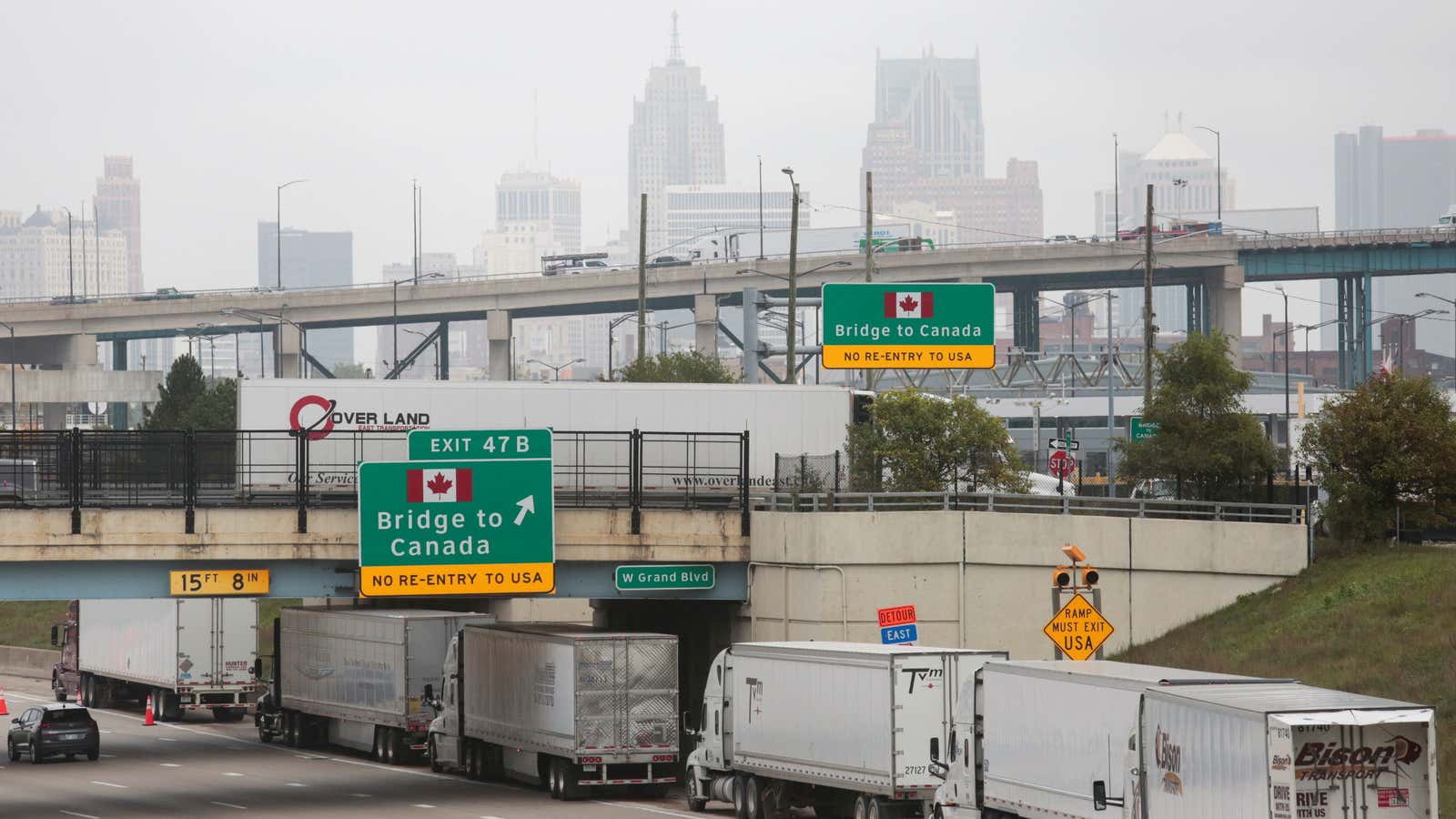Extreme weather and supply-chain snarls are among the reasons for shortages in grocery stores. Here’s another: Unvaccinated truck drivers.
In Canada, where as much as 90% of the country’s fruits and vegetables come from the US during the winter, a vaccine mandate for truckers is slowing down food shipments. Drivers who aren’t fully vaccinated against covid-19 have to quarantine for two weeks after entering Canada. Just about half of US truckers are vaccinated, according to industry estimates.
Vaccination rates among Canadian truckers are roughly in line with the national average, which is in the 83% to 87% range, according to the Canadian Trucker Alliance.
The mandate adds to the already strained supply chains in Canada, which have been subject to worker shortages, transportation bottlenecks, and recent storms. These factors are pushing up food prices globally.
The price to bring food across the border has doubled on some routes due to the scarcity of available truckers, Alex Crane, an operations manager at Paige Logistics, a freight broker in British Columbia, told Bloomberg. As a result, some shipments are just sitting in warehouses.
The US is set to impose similar rules on Jan. 22, which could worsen the cross-border food trade.
The balance between health risks and maintaining supply chains
It’s an open question if a vaccine mandate is needed for drivers, and how much these workers contribute to the spread of the virus. The potential risk needs to be balanced against the need to maintain supply chains, some health experts have argued.
Throughout the pandemic, a challenge has been trying to find a compromise between the ideal and the practical, Christopher Labos, a Montreal epidemiologist and cardiologist, told CBC news. But what’s clear is that issues with the global supply chain won’t subside until the virus is under control.
